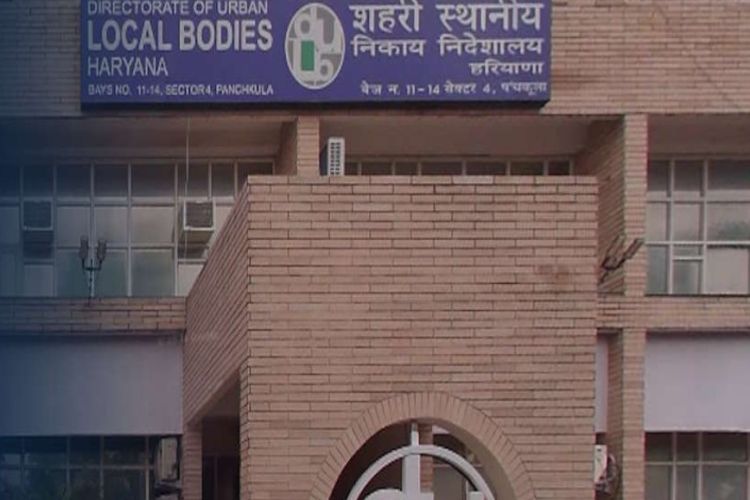A recent audit by the Comptroller and Auditor General of India, covering 393 urban local bodies across 18 states and representing more than 241 million citizens, offers a sobering snapshot of the state of India’s urban governance. Despite the constitutional push for decentralisation since 1992, the report reveals persistent financial stress, staffing shortages, and only partial devolution of functional powers. The gap between constitutional aspiration and administrative reality is stark—and growing.
The findings raise a pivotal question: do India’s urban local bodies possess the institutional capacity to absorb more funds and execute complex reforms? If not, how should the state intervene—without worsening inefficiencies or burdening already fragile systems?
READ | Trump’s crypto wave threatens India’s rupee sovereignty
Where decentralisation stalls
The audit lays bare several structural deficiencies. There is a 42% mismatch between the financial requirements of urban local bodies and their actual earnings. Only 29% of their total expenditure is directed towards developmental activities. Staffing is in disarray, with a 37% vacancy rate hampering service delivery. Property tax, the backbone of local revenue, is poorly enforced—collection stands at just 56% of the total demand.
Perhaps most tellingly, although 17 of the 18 constitutional functions have been formally devolved to urban local bodies, they retain full operational control over only four. The result is a hollowed-out version of decentralisation, where functions have been transferred on paper, but corresponding resources, autonomy, and administrative muscle have not.
This mismatch makes it clear that simply increasing financial allocations or issuing blanket reform mandates will not work. Without calibrated capacity-building, such measures may overload fragile systems, leading to inefficiencies, waste, and growing public disenchantment.
The case for a scenario-based approach
What urban India needs is not uniformity, but a differentiated strategy—tailored to the real capacity of each local body. A scenario-based approach would allow more capable municipalities to receive greater autonomy and unconditional grants, while mid-tier urban local bodies could be given conditional support linked to reforms in digital tax systems, staffing, and financial governance. Weaker bodies should first receive technical assistance and foundational capacity-building before they are asked to manage large financial flows or complex mandates.
This strategy has a sound economic rationale. India’s incomplete decentralisation often results in “unfunded mandates”—expecting local governments to deliver on responsibilities without adequate authority or funding. This undermines service delivery, erodes public trust, and weakens the federal fabric.
Aligning reform expectations and funding with actual capacity can enhance the marginal productivity of public funds—ensuring that each rupee spent delivers better outcomes. This can generate a virtuous cycle of improved governance, performance, and public confidence.
Learning from global practice
India is not alone in grappling with these challenges. South Africa’s Intergovernmental Fiscal Relations Act of 1997 introduced a classification system for municipalities based on financial and administrative capacity. Strong municipalities received unconditional grants, while others got conditional, capacity-focused assistance. Over time, many moved up the ladder of competence.
Similarly, Brazil’s Statute of the City (2001) linked fiscal transfers and urban planning powers to a city’s demonstrated ability to deliver development goals. These international examples underline a simple truth: one-size-fits-all governance frameworks do not work in diverse federal systems.
A federal imperative for urban India
India’s urban landscape is highly unequal—both across and within states. A scenario-based model is not just desirable, it is essential. It ensures that funding is responsive to actual need, that reform timelines are realistic, and that weaker urban local bodies are not set up to fail.
It also strengthens the principle of cooperative federalism. Merging functional autonomy with financial viability and administrative capacity would empower local bodies to deliver governance that is closer, quicker, and more accountable to citizens. The 16th Finance Commission and the Union government have an opportunity to design frameworks that reflect this diversity instead of offering blanket blueprints that ignore ground realities.
Grant formulas can be calibrated to performance and preparedness. Financial transfers should be complemented by technical handholding for urban local bodies that need it most. Reform timelines must be flexible—allowing room for both ambition and pragmatism.
Reform design for urban local bodies
But differentiation must not become destiny. To avoid entrenching inequality, the scenario-based model must allow for mobility. Performance-linked grants, capacity-building incentives, and public recognition can motivate local bodies to improve over time. Creating an aspirational governance environment is just as crucial as setting up support structures.
The CAG’s recommendations offer a clear roadmap. Improving property tax enforcement, filling staff vacancies, and enhancing operational autonomy are critical first steps. But these must be underpinned by the recognition that urban local bodies are starting from vastly different baselines.
By 2050, over half of India’s population will live in urban areas. Building capacity is no longer just about better roads or cleaner cities. It is about sustaining India’s economic growth, preserving social cohesion, and addressing the environmental challenges of urbanisation.
It is time to move beyond the rhetoric of decentralisation and embrace the practice of real empowerment. A scenario-based, differentiated approach offers the most credible path forward—one that respects diversity, prioritises impact, and aligns governance ambition with ground-level reality.
Debdulal Thakur is Dean, Vinayaka Mission’s School of Economics and Public Policy, Chennai.

